I’ve been trying to gather my thoughts for weeks on the topics of antiracism and white allyship, spurred by the latest national conversation about race in America.
I say the ‘latest conversation’ because while the murders of George Floyd, Breonna Taylor, and Ahmaud Arbery, and the dangerous incident in Central Park between Amy Cooper and Christian Cooper have brought the topic of racism to the forefront once again for white people, we’ve been here before.
Note: If you’re hearing names like Sandra Bland and Breonna Taylor and aren’t familiar with their stories, check out this resource by Rachel Cargle. It includes background information on a number of cases of police brutality and murder.
It’s hard to know what to say and where to start this conversation, but I think that when it comes to these topics it’s better to say something and fall short than to say nothing at all.
For white people who want to be better allies, there’s so much action to take and learning to do. And I think it’s important that the learning and the action take place simultaneously, because there’s no time to spare.
Listen and Learn
You may have already seen this, but there’s an incredible Google Doc floating around that contains tons of anti-racism resources. It has everything from movies, tv shows, and documentaries to watch, to podcasts to listen to, to articles to read. I think it’s a great starting point for most people, myself included.
If you want to learn more about the intersection of criminal justice and racial justice, groups like the African American Intellectual History Society and Critical Resistance both have extensive information.
And to supplement your reading or just take a more interactive approach to learning, check out this e-course by Rachel Cargle.
Reading List
Knowing me, you can’t be surprised that I think books are an important part of this learning process. I think reading is one of the best ways to expand your mind and put yourself in the shoes of another person.
You can’t go wrong picking up anything written by Roxane Gay, Ta-Nahesi Coates, Maya Angelou, Toni Morrison, or James Baldwin.
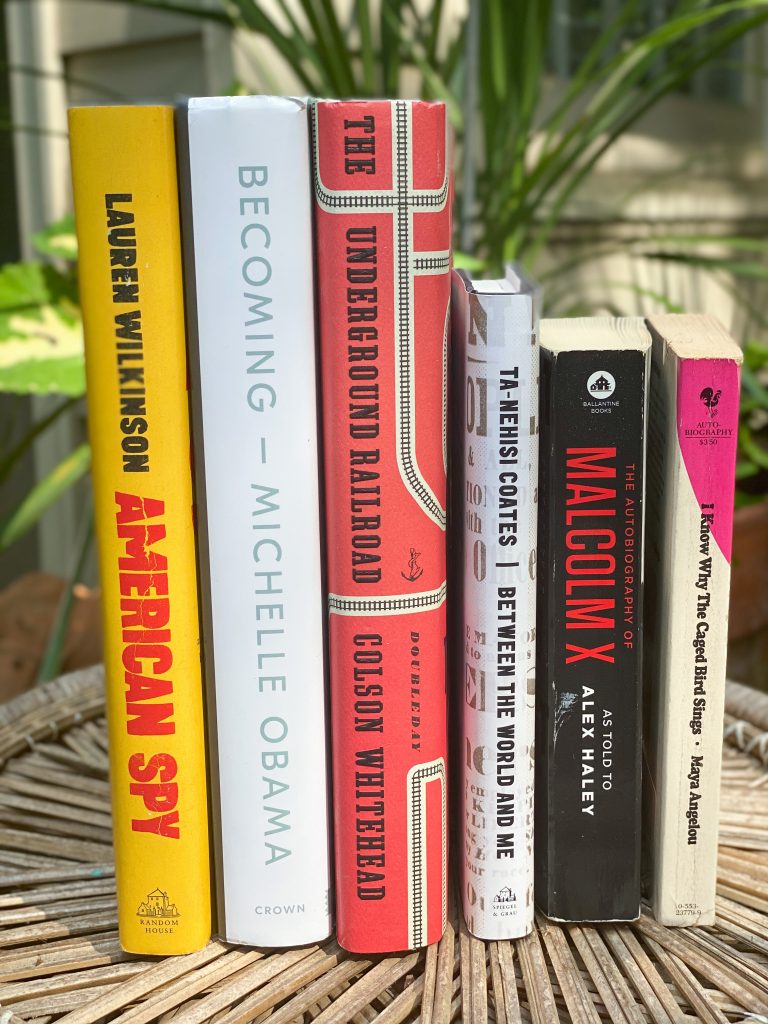
This year it’s a goal of mine to read more works written by black authors. To be honest, there’s a lot of room for me to improve on that front. So far I’ve read everything Jasmine Guillory has written (reviews here and here), Such a Fun Age by Kiley Reid (review here) and Becoming by Michelle Obama (review here). I also have plans to read The Vanishing Half by Brit Bennett and Clap When You Land by Elizabeth Acevedo this summer, but I need to do better. I need to do more.
There are lots of great book recommendations in the Google Doc I referenced earlier. This is an incredible list of antiracism children’s books and here is a list of children’s books featuring black heroes and characters. And if you’re more of an audiobook person, Libro.fm has put together a list of the best antiracist audiobooks. I’d also recommend following black bookstagrammers like @book_girl_magic, @blackgirlthatreads, and @melanatedreader who are all sharing great antiracism reading lists.
Expand Your Circle
One of the best things you can do for yourself is to expand the circle of voices you hear from. Take an audit of the people you follow online and add some new voices to the mix. Be intentional about diversifying your friend group. Consume more news from black reporters.
In addition to the bookstagrammers I mentioned, I’d take a look at @rachel.cargle, @ohhappydani (the creator of the beautiful graphics I’ve included here), @mspackyetti, @luvvie, @ava, and @elainewelteroth if you’re not already following them. Financially contribute to their projects and amplify their voices.
Take Action
When it comes to action items, I’d divide things into three buckets – your money, your voice, and your time.
Your Money
I know that many people don’t have disposable income right now. If you do, donate to groups posting bail for protestors being arrested in Minnesota, Kentucky, and more. (It seems like need is quickly shifting so please do some research when you’re ready to donate to see who is most in need on any given day.) And organizations like the ACLU, NAACP, and Southern Poverty Law Center will always be good stewards of your dollars.
I think this goes without saying, but don’t support racist businesses. This includes businesses that rely on prison labor of which you can find a short list here. For example, this week I learned that Victoria’s Secret uses prison labor to make some of their garments. So you know what means – I’ll now be buying my bras elsewhere. And of course go out of your way to support black owned businesses.
Your Voice
I’ll be honest – I’m not sure that social media is always the best venue for sensitive conversations. But it is your job to use your voice to share what you’re learning with white people in your life, especially friends or family members who may only get their news from FOX News or similar sources, so have tough conversations in person.
Reach out to elected officials and your local police department. This is an incredible article that is regularly updated and includes many of the issues you should be raising with those leaders.
Your Time
Canvass for racial justice groups and candidates that are fighting for racial justice. This is an important way for white women in particular to do their part because it’s unlikely we’ll have doors slammed on us or be hung up on simply because of our race and gender.
When it’s safe to do so again, attend antiracism marches.
A couple of final thoughts as we all navigate this work together:
- Listen to the black folks who say time and time again that it is hurtful to see audio and video of murders shared on social media. It just amplifies existing trauma.
- Whatever you do, don’t follow Shaun King or give hime a dime.
- Remember that it’s your job to educate yourself about racism. Don’t place that burden on people of color, but do listen if they provide feedback along your journey.
- To everyone posting about #RunWithMaud or #BlackLivesMatter and prefacing your thoughts by saying “I don’t usually like to get political, but ….” – stop. Just stop. I don’t even know where to start with that mixed up thinking but I’d challenge you to ask yourself why you feel the need to say that. Are you worried that your friends and family will assume you’re a matter of a certain political party? If so, you may as well acknowledge that the political party you and those around you usually associate yourself with is leading the charge in oppressing people of color.
I hope this was helpful for you. It was helpful for me and allowed me to really start to take an inventory of the ways in which I can improve as an ally, but it’s a journey for a lifetime.
I want to give one last shoutout to the team behind this article – it’s truly the best resource I’ve found on this topic for white people.

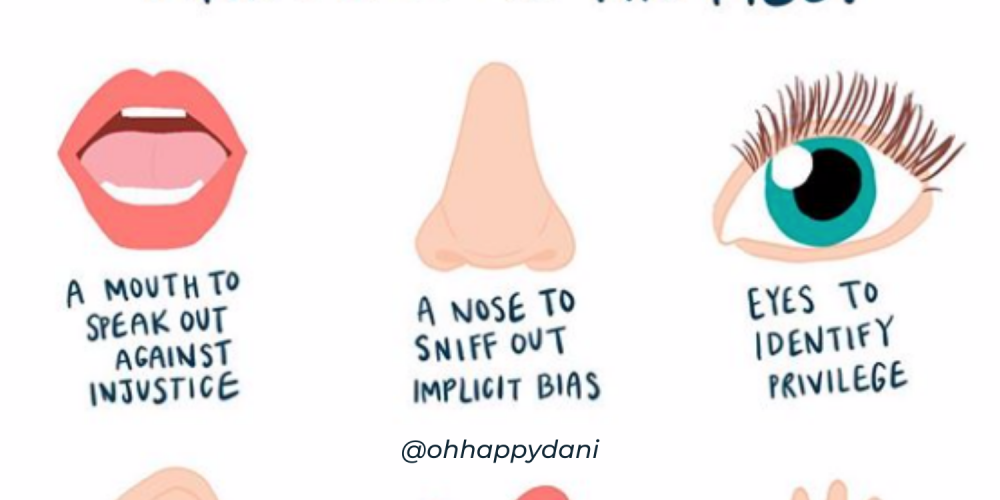
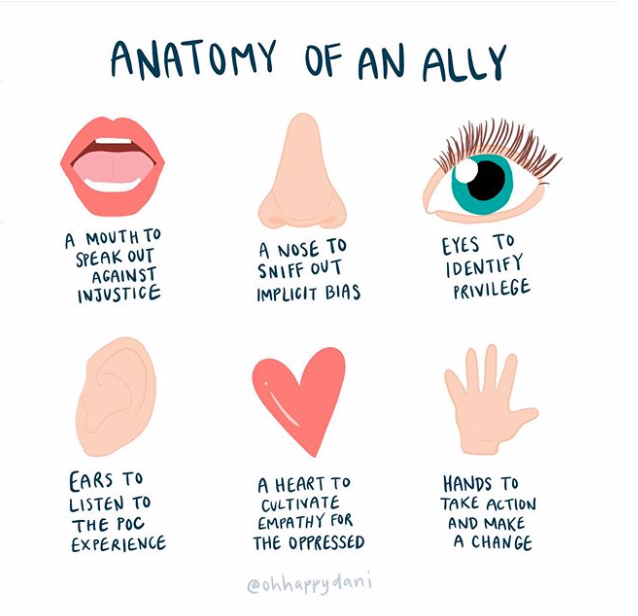
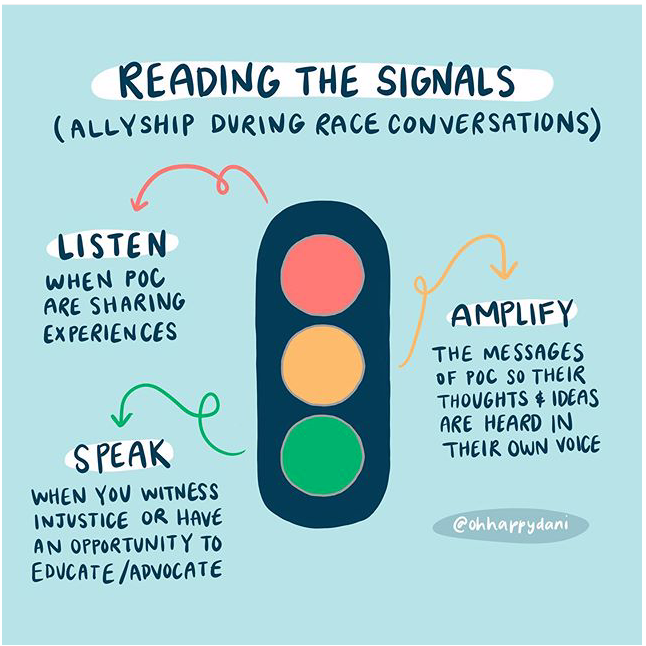

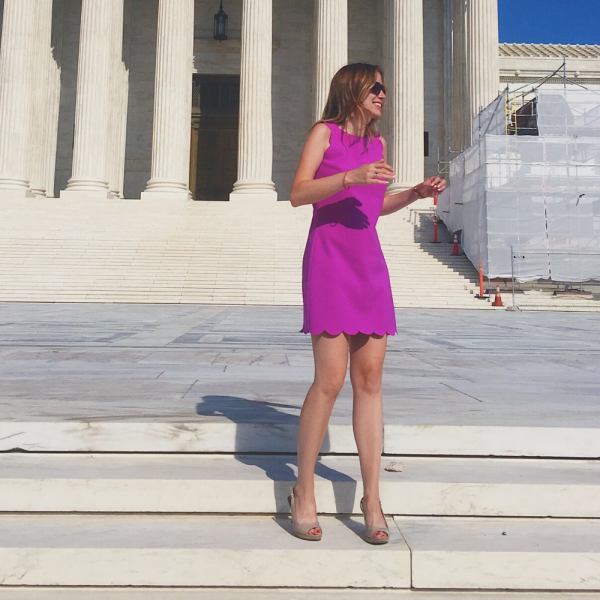


[…] this kind of stuff? Everybody, who thinks this is not their problem, please educate yourselves (I loved this post for resources) and find ways to do good in the world. It needs […]